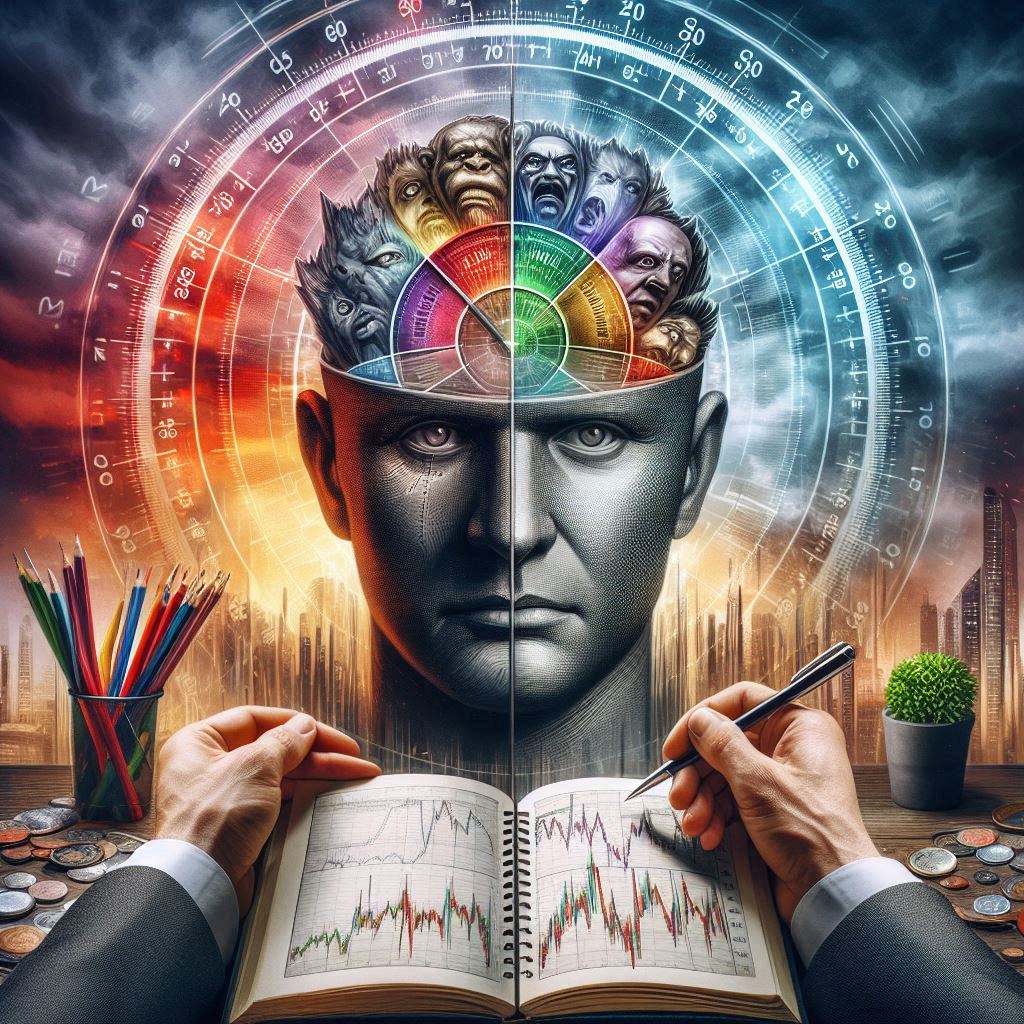In the ancient world, the greatest warriors weren’t just defined by their strength or skill with a sword — they were revered for their mental fortitude, their ability to remain calm in battle and adapt under pressure.
Likewise, in the modern age of future prop firms, the greatest traders will not only be those with technical expertise or market knowledge, but those with emotional resilience and cognitive agility.
Psycho-Metrics Based Trader Selection is the key that unlocks the true potential of a trader’s inner world.

1. The Crystal Mirror: Revealing the True Self
- Traditional recruitment methods are like mirrors — they reflect the surface: what a trader says, how they perform today.
- Psycho-metrics, however, are like a crystal that cuts through the surface to reveal the true nature of the trader:
- How do they react under stress?
- What are their subconscious biases?
- Can they adapt when the market changes its tune?
- Future prop firms will see not just the trader’s actions, but their emotional triggers, thought patterns, and latent potential.
2. The Hidden Garden of Mind: Tending to Growth
- Traditional models treat traders like seedlings, hoping they grow into fully formed trees of profitability.
- Psycho-metrics allow firms to plant seeds in fertile soil — identifying those who can withstand storms (losses) and grow tall even in the shade (difficult market conditions).
- Future prop firms will understand that the most valuable traders are not necessarily those who grow fastest, but those who grow with sustainable resilience.
3. The Navigator’s Compass: Guided by Inner Stability
- Just as a seasoned navigator uses a compass to stay on course through unpredictable seas, psycho-metrics will help traders stay grounded amid the turbulent emotional tides of the market.
- In future prop firms, this internal compass — emotional stability, mental clarity, and adaptive thinking — will be as important as technical skill.
- The best traders will have learned how to trust their compass, not simply follow the whims of the market.

4. Objection: “Can’t Emotional Intelligence Be Learned Over Time?”
- Some might argue that emotional stability and cognitive agility are traits that can be developed over time with experience.
- Rebuttal:True, emotional intelligence can improve, but it requires years to reshape deeply ingrained patterns.
- Psycho-metrics will allow firms to identify those with natural aptitude for emotional resilience early on, accelerating their path to mastery.
5. Objection: “Isn’t This Approach Too Invasive? Traders Are More Than Numbers.”
- Critics may claim that psychological profiling reduces traders to mere data points — stripping away the human complexity.
- Rebuttal:Not at all.
- Psycho-metrics don’t replace the human element; they enhance it. Just as a map doesn’t replace the traveler, psycho-metrics reveal the inner terrain of the trader, helping them navigate the market more effectively.
- Future prop firms will respect individuality, using psycho-metrics as a tool to unlock potential, not as a cage to limit creativity.
6. The Sculptor’s Chisel: Refining Raw Talent
- Think of a raw block of marble — it holds potential, but it requires the artist’s eye to sculpt it into a masterpiece.
- Psycho-metrics are the sculptor’s chisel, allowing future prop firms to fine-tune traders’ innate traits and craft them into highly skilled market artisans.
- With the right psychological framework, traders will not just react to the market, but anticipate and adapt to its ever-changing nature.
7. The Weathered Ship: Navigating Emotional Storms
- Traders are like ships sailing through vast, unpredictable oceans. On calm days, they sail effortlessly; but when storms hit, only the most weathered ships stay afloat.
- Psycho-metrics will measure the structural integrity of a trader’s mental and emotional framework — ensuring that they can weather market storms and continue on their journey.
- In future prop firms, these traders won’t just survive; they will thrive in chaos, their resilience serving as the anchor in the roughest seas.
8. The Alchemist’s Touch: Transforming Stress into Gold
- Stress is often viewed as the enemy in trading, a force that clouds judgment and leads to poor decisions.
- Yet, the alchemist knows that stress, when mastered, can be transformed into energy, precision, and innovation.
- Psycho-metrics will uncover how traders handle stress and whether they can transmute this pressure into high-performance moments.
- Future prop firms will value those who turn emotional lead into golden decisions, seeing stress not as a flaw, but as a potential source of strength.
9. The Tree with Deep Roots: Stability Amidst Change
- The most resilient trees are those with deep, intertwining roots. When the winds blow strong, they bend but do not break.
- Traders with deep emotional stability are like these trees, standing firm even as market volatility shakes the ground beneath them.
- Future prop firms will look for traders whose roots are firmly planted in self-awareness, allowing them to stand tall amid any market storm.
In the future, prop firms will go beyond the surface-level metrics of trading performance. By integrating psycho-metrics into their evaluation systems, they will unearth the hidden dimensions of traders:
- Their emotional resilience.
- Their mental agility.
- Their ability to adapt under pressure.
The true future of trading isn’t just about mastering charts or strategies — it’s about mastering the self. And future prop firms will be the stewards of this inner journey, selecting traders who possess the rarest, most valuable trait of all: the ability to remain calm and effective when the storm is fiercest.




